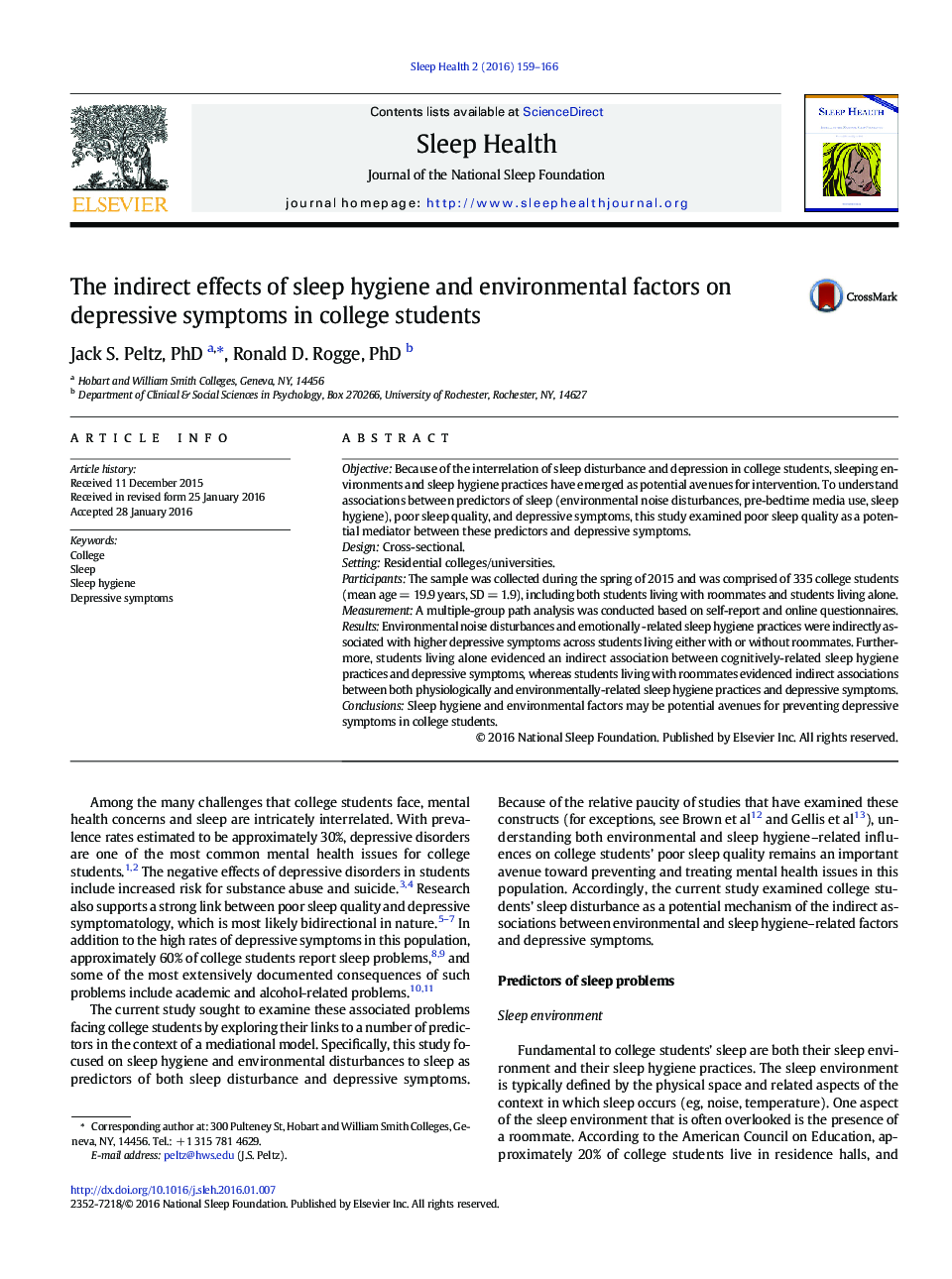| Article ID | Journal | Published Year | Pages | File Type |
|---|---|---|---|---|
| 916252 | Sleep Health | 2016 | 8 Pages |
ObjectiveBecause of the interrelation of sleep disturbance and depression in college students, sleeping environments and sleep hygiene practices have emerged as potential avenues for intervention. To understand associations between predictors of sleep (environmental noise disturbances, pre-bedtime media use, sleep hygiene), poor sleep quality, and depressive symptoms, this study examined poor sleep quality as a potential mediator between these predictors and depressive symptoms.DesignCross-sectional.SettingResidential colleges/universities.ParticipantsThe sample was collected during the spring of 2015 and was comprised of 335 college students (mean age = 19.9 years, SD = 1.9), including both students living with roommates and students living alone.MeasurementA multiple-group path analysis was conducted based on self-report and online questionnaires.ResultsEnvironmental noise disturbances and emotionally -related sleep hygiene practices were indirectly associated with higher depressive symptoms across students living either with or without roommates. Furthermore, students living alone evidenced an indirect association between cognitively-related sleep hygiene practices and depressive symptoms, whereas students living with roommates evidenced indirect associations between both physiologically and environmentally-related sleep hygiene practices and depressive symptoms.ConclusionsSleep hygiene and environmental factors may be potential avenues for preventing depressive symptoms in college students.
